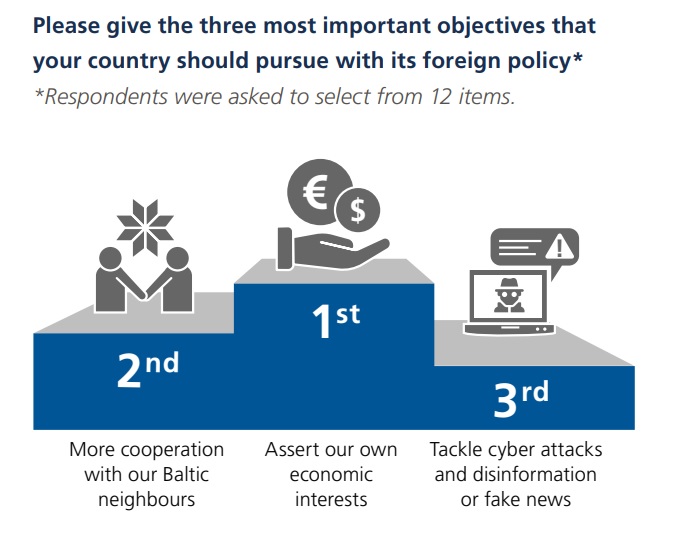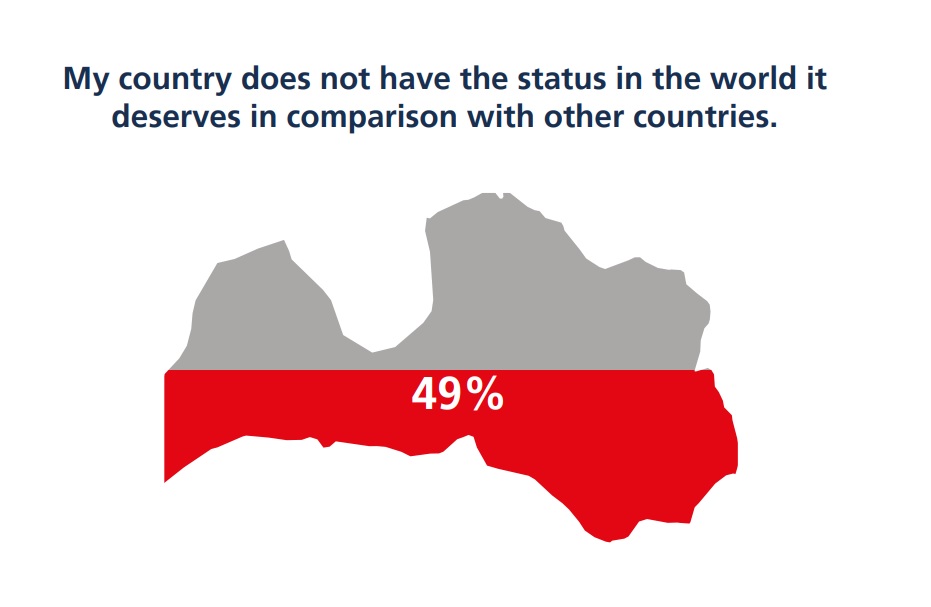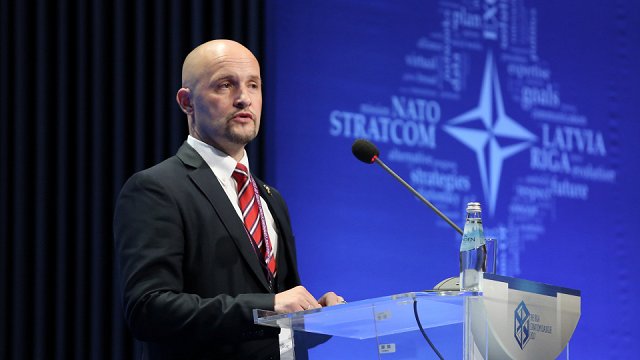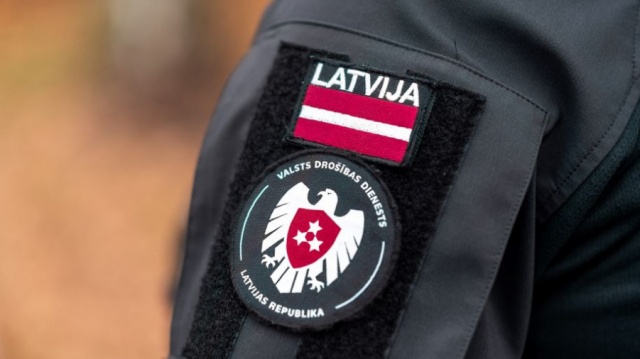The Security Radar consists of findings from 14 countries, including Latvia, in which IPSOS surveys were conducted to gauge public and expert opinions. This is the second edition of the Security Radar, the first one having come out in 2019.
The Latvia section contains several interesting passages and a complex, sometimes contradictory attitude displayed by Latvian society.
"Latvian respondents are quite dissatisfied with their country’s status. The three biggest concerns are wars and conflicts, economic crises and uncontrolled migration. These issues worry around 80% of respondents – significantly more than the cross-country average," the report says.

"About two-thirds of polled Latvians would like to see their country’s foreign policy enforce values. This is higher than the survey average but significantly lower than in 2019 (82%)... Latvians support cooperation to ensure international peace and security even with countries that do not share their values (77%, second highest figure in the poll). However, over half of respondents are not willing to take international responsibility and help other states if there is no direct benefit to Latvia," the report adds.
Latvians also emerge as strong supporters of the idea of a European army.
"Half of Latvian respondents (50%) support the establishment of a European army, ranking second among surveyed EU member states after France (53%). Latvians want the EU to be more active in defence policy, disagreeing more strongly than most other EU members with the statement that defence is primarily a concern of individual member states."
At the same time "'Latvia comes near the bottom as regards support for increased military spending (37%), only ahead of Italy and Russia."
The full report runs to more than 100 pages and is available to read online at the Friedrich-Ebert-Stiftung website along with details of the methodology used to generate the data.
The Friedrich-Ebert-Stiftung (FES) is the oldest political foundation in Germany, dating back to its foundation in 1925. The foundation owes its formation and its mission to the political legacy of its namesake Friedrich Ebert, the first democratically elected German President.




























